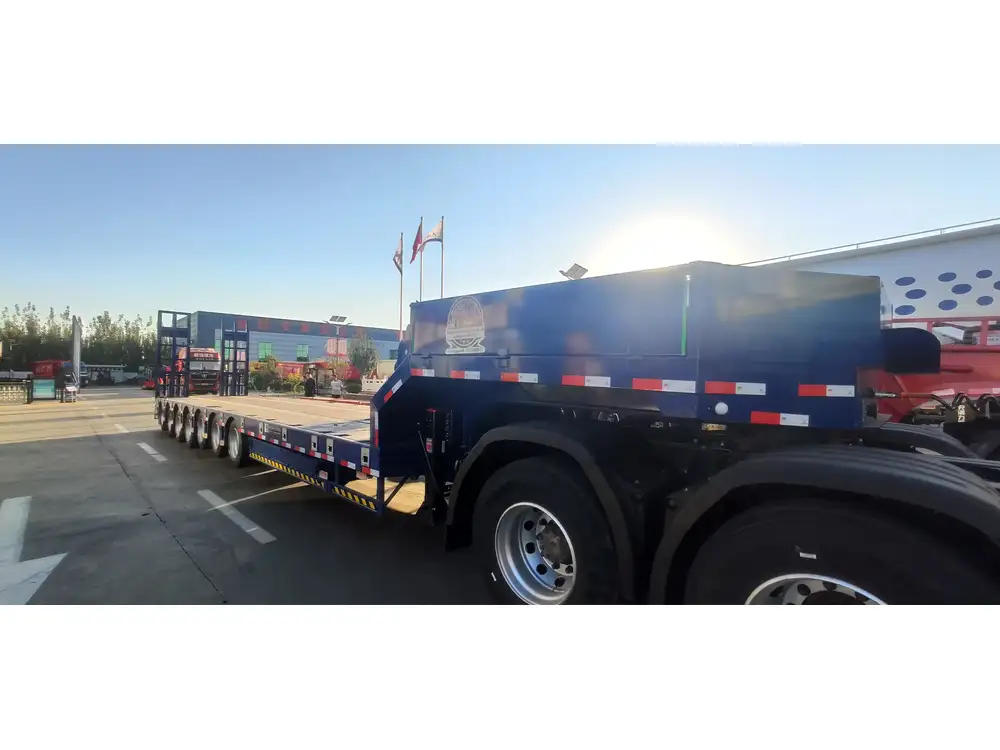Car hauler trailers are integral tools in the transportation industry, designed primarily to carry vehicles from one location to another efficiently and safely. Understanding the weight of these trailers is crucial for several reasons: legality, safety, and operational cost-effectiveness. In this extensive guide, we will dissect the various aspects influencing the weight of car hauler trailers, provide vital comparative data, and answer frequent inquiries regarding weight classifications and specifications.
Understanding Car Hauler Trailers
Definition and Purpose
Car hauler trailers, also known as auto transport trailers, are specialized trailers designed to transport multiple vehicles simultaneously. They come in various configurations, including single-level, multi-level, open, and enclosed variations. Each type serves different purposes, requiring distinct weight capacities and configurations.

Key Components of Weight
The overall weight of a car hauler trailer is influenced by several factors:
Material Construction: The materials used in the fabrication of the trailer significantly affect its weight. Steel trailers, while durable, are heavier than aluminum models, known for their lightweight and resistance to rust.
Dimensions: Size matters. A longer and wider trailer will naturally weigh more due to increased material usage.
Design Type: The choice between an open-air or enclosed trailer can add significant variances in weight. Enclosed trailers, built for all-weather protection of vehicles, are typically heavier than their open counterparts.
Axles and Suspension: The number of axles and the type of suspension used can influence weight distribution, affecting the overall loading capacity.
Different Types of Car Hauler Trailers and Their Weights
| Trailer Type | Average Weight (lbs) | Capacity (Vehicles) | Material |
|---|---|---|---|
| Single-level Open | 2,500 – 3,500 | 1 – 2 | Steel/Aluminum |
| Multi-level Open | 5,000 – 7,000 | 2 – 10 | Steel/Aluminum |
| Single-level Enclosed | 3,500 – 5,500 | 1 – 2 | Aluminum |
| Multi-level Enclosed | 7,000 – 10,000 | 2 – 8 | Steel/Aluminum |
These weights are averages and may vary with manufacturer specs, model designs, and additional features.
Factors Influencing the Weight of Car Hauler Trailers

1. Construction Material
The material used in the construction of a car hauler trailer plays a pivotal role in determining its weight. Generally, aluminum is lighter than steel, making aluminum trailers easier to tow, but possibly less durable. Steel, while heavier, offers superior strength and longevity, particularly in rugged usage scenarios.
2. Weight Distribution
Proper weight distribution on the trailer is essential for safe towing. Most car hauler trailers are designed to ensure a balanced load, which can affect the trailer’s functionality and performance. An uneven distribution can lead to increased wear on tires and suspension components, as well as reduced stability while on the road.
3. Extra Features
Many car hauler trailers come with additional features that can contribute to weight, such as:
Dovetail Designs: Enhances loading capabilities but adds weight.
Winches: Can assist in loading vehicles but will increase initial trailer weight.
Fenders and Toolboxes: Useful for storage and protection but also add to overall weight.

4. Legal Considerations
Different regions have weight restrictions on trailers that impact how much a car hauler can safely load or carry. Adhering to regulations ensures compliance and promotes safe driving. For example, understanding the Gross Vehicle Weight Rating (GVWR) helps to determine loading limits and avoid penalties.
Trailer Weight Load Calculations
Calculating the usable weight of a car hauler trailer ensures it does not exceed legal limits:
Empty Trailer Weight (ETW): The weight of the trailer alone without any load. This is crucial to understand for compliance.
Maximum Load Capacity: Different trailers have maximum load capacities that must not be exceeded, usually labeled by the manufacturer.
Example Calculation
Assuming:
- Empty Trailer Weight (ETW): 5,500 lbs
- Maximum Load Capacity: 10,000 lbs

Gross Combination Weight (GCW)
The GCW can be calculated as follows:
[ \text{GCW} = \text{ETW} + \text{Maximum Load Capacity} ] [ \text{GCW} = 5,500 + 10,000 = 15,500 \text{ lbs} ]This average weight is crucial for compliance with local and federal regulations while transporting vehicles.
Safety Considerations when Towing
Towing a car hauler trailer requires understanding several safety precautions:
Tow Vehicle Capability: Ensure your tow vehicle can handle the combined weight of the trailer and the load.
Braking Systems: Car hauler trailers often have brakes that can engage automatically when weight loads reach certain thresholds.
Regular Inspections: Inspect tires, wiring, brakes, and the overall condition of both the trailer and the vehicle regularly.
Weight Distribution Hitches: Investing in quality distribution hitches can also improve stability during transport.
Common FAQs About Car Hauler Trailer Weight

What is the Average Weight of Car Hauler Trailers?
The average weight varies between 2,500 lbs and 10,000 lbs, depending on design and materials, with multi-level trailers generally being heavier.
How do I Know If My Trailer is Overweight?
Check the trailer’s manufacturer label for its GVWR and compare it with the actual weight using a certified scale.
What Are the Consequences of Towing an Overweight Trailer?
Towing an overweight trailer can lead to increased wear and potential failure of vehicle components, legal penalties, and safety hazards due to compromised maneuverability.

Can I Use My Car Hauler for Different Types of Vehicles?
Yes, depending on the specific design and capacity of your car hauler trailer, it may be suitable for various vehicle types, from standard passenger cars to larger SUVs and trucks.
Conclusion
Understanding the weight of car hauler trailers is crucial not just for compliance but also for ensuring safe and effective transportation of vehicles. Whether you’re a manufacturer, retailer, or end-user, knowing how much a car hauler trailer weighs and the factors that impact this weight can help guide your purchasing decisions and operational practices. Weigh the benefits of each option carefully, considering factors such as design, materials, and intended usage, to select the ideal trailer for your needs. By prioritizing safety, legality, and efficiency, you can make informed choices that enhance your transportation capabilities while minimizing risks.



